Millions of Iranians Displaced Amid Water Crisis
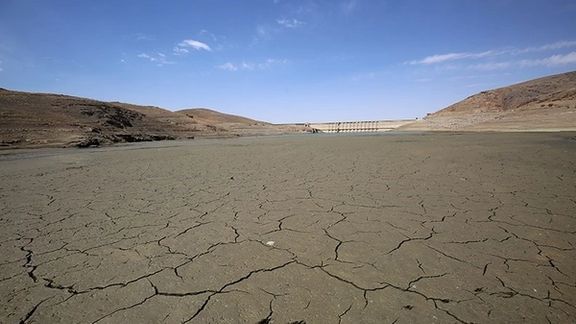
Within the past 25 years almost 25 million Iranians have been displaced amid water scarcity worries.

Within the past 25 years almost 25 million Iranians have been displaced amid water scarcity worries.
Mehdi Zare’, Professor of the International Research Institute of Seismology said: “There are about 12 million marginalized people in Iran, and almost 10 million of this population are directly facing problems caused by the water crisis.”
In an interview with Hamshahri online, he said water scarcity and the subsidence of the earth have deteriorated in Iran and according to geologists, seven provinces now face dire situations.
One of these provinces is Isfahan, where land subsidence has reached the residential areas. Tehran province is also not safe from subsidence and in recent months, many cases of land subsidence were witnessed on highways around the city.
Iran ranks fourth in land subsidence in the world and 30 provinces of the country are involved in it. It is said that the land subsidence in Iran is more than five times the world average.
The main reason for land subsidence in Iran is the draining of underground water and the digging of deep wells since the 1060s, Zare explained.
Last month, Iran International obtained documents revealing that Iranian officials are aware of dangerous land subsidence but are unwilling to share it with the public.
A confidential letter revealed that about 550 square kilometers of land in and around the capital Tehran (about the size of the UK city of Manchester or the US city of El Paso, Texas) is sinking an average of over 13 centimeters (about 5.12 inches) per year.
According to another document, 380 cities and towns and 9,200 villages are at risk of land subsidence.
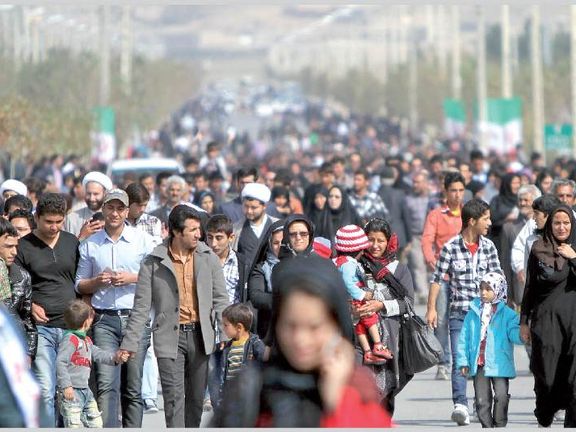
An Iranian sociologist who was an adviser to reformist President Mohammad Khatami (1997-2005), says Iranians perceive the current power structure as an alien entity.
"When the government is perceived as a stranger, the society cannot tolerate its shortcomings." Hossein Valeh said in an interview with Roiuydad24 on Saturday. The government has lost trust because of its aversion to being inclusive, he added.
What is worse is that "The regime has widened the gap between itself and the nation instead of trying to fill it." It has become less attentive to popular demands.
Pervasive political instability in Iran began in 2017, when after years of deteriorating relations with the West and international sanctions, the economy became stagnant. Anti-regime protests that started in December of that year in fact never stopped and in September 2022 millions of disenchanted people came out into the streets nationwide, posing the most serious challenge to the clerical regime in four decades.
Valeh, a former diplomat and a current assistant professor at the Department of Philosophy of the Shahid Beheshti University in Tehran, also told Rouiydad24: "Generally, when there is a divide between the government and the nation, the country becomes polarized."
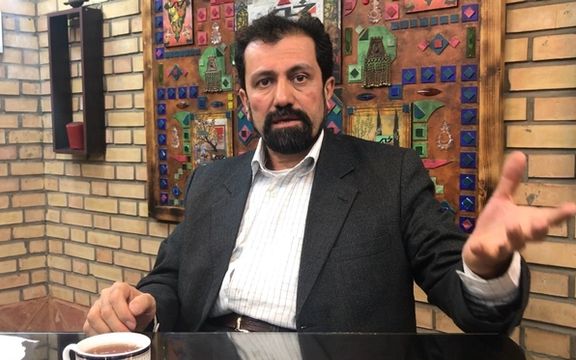
"In such a situation, no one hears the voice of truth and instead, everyone will listen to those who reduce the other side to the level of an enemy," Valeh said, adding that each side perceives any positive news about itself as a fact and any negative statement as a lie without bothering to establish the truth."
The sociologist maintained: "The gap between the government and the nation is currently deep and wide. As a result, we tend to believe any fake news which supports our point of view or rules out the other side's opinion." He added: Maciavelli has taken over our collective unconscious."
Under these circumstances expectations from the government will rise. The people will minimize its achievements and maximize its shortcomings in their perceptions.
He explained that there are accumulated divides in Iran based on religious versus non- religious, traditional versus modern and liberal versus despotic dichotomies. Valeh added that since the 18th century, this accumulated dichotomies have been the driving force of political developments while also creating social conflicts.
The people's distrust of the government will increase the cost of governance and make progress difficult. It will eventually erode the government's legitimacy altogether. Meanwhile, in the absence of public trust, the government cannot make up for its inefficiency.
Particularly dangerous is the divide between the very young generation and the aging clerics supported by the Revolutionary Guard who try to keep the society within the bounds of their isolationist religious ideology.
Along the same line, highlighting the divide between the state and the nation, former government spokesman Ali Rabiei wrote in Etemad Online that it appears there is a tendency in the government to oppose people's happiness. "Regrettably the government has forgotten the events that took place during the protests in the fall of 2022, and that is dangerous.
He pointed out that the government tends to ignore all the explanations and reasons that have been highlighted for last year's events, and it does not understand the people's concerns about the present and the future. The result, he said, is an unhappy and frustrated society.
Rabiei added: "The political depression reveals itself as lack of interest in political participation within the system and a tendency to protest."
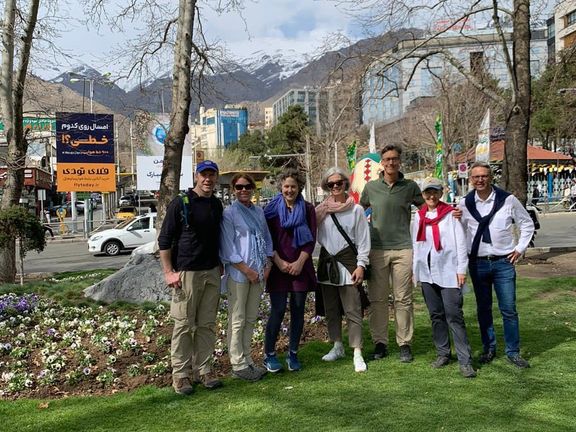
Iran’s IRGC-affiliated Fars news agency slammed the outings of ambassadors and their families in public without mandatory hijab.
The hardline website on Sunday demanded that the Ministry of Foreign Affairs deal with the diplomats who do not obey the Islamic dress code.
Fars published photos of three tourists in a car with diplomatic license plates in Khorramabad, western Iran, saying these people included a man wearing short pants and two women without headscarves.
“Removing hijab by the ambassadors and their wives is not unprecedented. For example, during Nowruz this year, the envoys of the United Kingdom, the Netherlands and Denmark broke the laws of our country by walking with their wives who were not covered with veils on Valiasr Street in Tehran and then published the pictures on social media,” added Fars.
Frank Molen, the Netherland’s Ambassador to Tehran, published some photos of his excursion in the Iranian capital along with some colleagues in March.
Fars called such moves "mischievous" behavior that are "in non-conformity with diplomatic rules" claiming that they are supporting the “riots” in Iran.
Fars also launched a petition asking its audience to sign to put pressure on the foreign ministry to deal with the issue.
Four decades after the Islamic Republic made hijab mandatory, women are increasingly appearing in public in regular clothing such as colorful dresses and with no headscarf covering their hair.
Since the death of the 22-year-old Mahsa Amini in the custody of morality police and the protests that engulfed the country for months many women have discarded their headscarves altogether and vowed never to wear it again.

Russia launched an overnight drone attack on Kyiv after a 12-day break, with air defense systems destroying all the UAVs, Ukrainian military officials said Sunday.
The country's air force said that the attack included eight Iranian-made Shahed drones and three cruise missiles which were shot down.
"Another enemy attack on Kyiv," Serhiy Popko, a colonel general who heads Kyiv's military administration, said in a post on the Telegram channel.
Iran has supplied hundreds of Shahed kamikaze drones to Russia since mid-2022, angering the United States and its key European allies who have imposed sanctions on a host of companies and individuals involved in their production and shipment to Russia.
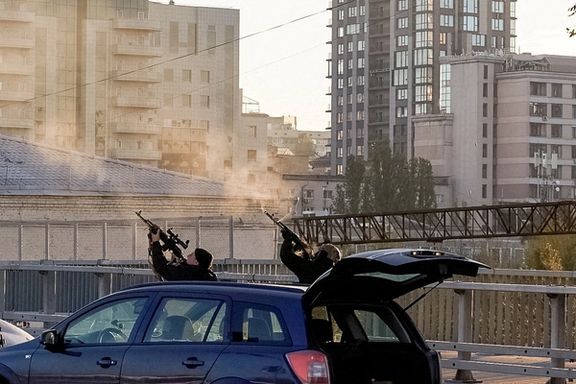
Washington has demanded that Tehran should stop its supply of weapons to Moscow if it wants to reach a new nuclear agreement and see US sanctions lifted.
Although Ukrainian forces quickly learned to shoot down most Iranian drones, Russia uses the cheap weapon to overwhelm air defenses and force Ukraine to use much more expensive Western anti-air missiles.
Three private houses were damaged as a result of falling drone debris in the Kyiv region, injuring one person, the military head of the region, Ruslan Kravchenko, said on his Facebook page.
Reuters witnesses heard blasts resembling the sound of air defense systems hitting targets. There was no immediate information about the scale of the attack.
Kyiv, its surrounding region and a number of central and eastern Ukraine's regions were under air raid alerts for about an hour after 2 a.m. local time (2300 GMT).
With reporting by Reuters, The Kyiv Independent
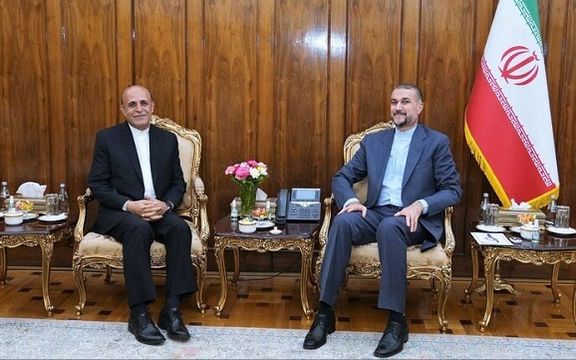
Iranian state media quoted an informed source as saying that the Islamic Republic currently has no plans to send a new ambassador to Sweden.
The state-run IRNA news agency reported Sunday that the decision was made after the burning of the Quran by a man in the European country.
This comes as local media earlier reported the administrative procedures for sending the new ambassador are completed. They also published a picture of the new ambassador Hojatollah Faghani and the Minister of Foreign Affairs, Hossein Amir-Abdollahian.
Faghani previously worked in the embassies of the Islamic Republic in Tbilisi and Brussels and was also the ambassador to Dushanbe, the capital of Tajikistan.
Two men publicly burned the Quran outside Stockholm's central mosque on Wednesday, an act approved by a Swedish court.
It was deliberately timed to coincide with the significant Muslim holiday, Eid al-Adha, further magnifying the incident's significance.
The act led to protest rallies in several Muslim countries, with Iraqis holding a large demonstration outside the Swedish embassy in Baghdad.
Iran’s foreign ministry also summoned Sweden’s charge d’affaires in Tehran.
Several Muslim nations as well as the European Union condemned the latest incident of desecration of the Quran on Saturday.
“Manifestations of racism, xenophobia and related intolerance have no place in Europe,” Nabila Massrali, the EU spokesperson for foreign affairs and security policy, expressed in a statement.
“The EU joins the Swedish Ministry of Foreign Affairs in its strong rejection of the burning of a [copy of the Holy] Quran by an individual in Sweden. This act in no way reflects the opinions of the European Union.”
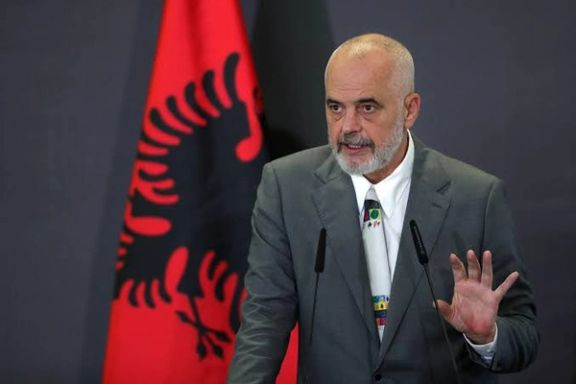
Edi Rama, Albania's prime minister, said in an interview with Der Spiegel on Friday that the Mujahideen cannot use Albania to fight the Iranian regime.
A few days ago, the Albanian State Police, on the orders of the Special Court, conducted checks in the Mojahedin-e-Khalq (MEK) camp, resulting in clashes between its residents and security forces.
The opposition group said on June 20 that hundreds of Albanian police officers raided the group's exile center, Camp Ashraf, in an unexpected move.
The group alleged one of their members, identified as Ali Mostashari, died and more than a hundred others were injured, with some hospitalized in critical condition after police raided the camp using tear gas and pepper spray and seizing computers. The group claimed the attack was instigated by the Iranian regime.
Albanian authorities denied any loss of life or injuries, saying that the incident happened due to the group’s refusal to cooperate with the police.
Police said it had suspicions that there may be people on the premises involved in cyberattacks against Tirana as well as criminal “acts of larger dimensions.”
Rama told Spiegel although the MEK are welcome, they should not use Albania as a political platform.
“Albania has no intention of being at war with the Iranian regime. Albania does not accept anyone who has abused our hospitality,” he added.
He also noted that Tirana accepted thousands of the MEK members under a life-saving operation at the request of the Obama administration in 2016.
“Our country is used as a trench in a war that is not ours, it does not work! Of course, they have every right to fight for their freedom, but to do so they must leave Albania,” the prime minister noted.